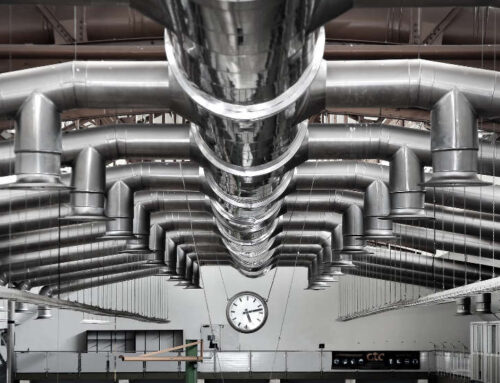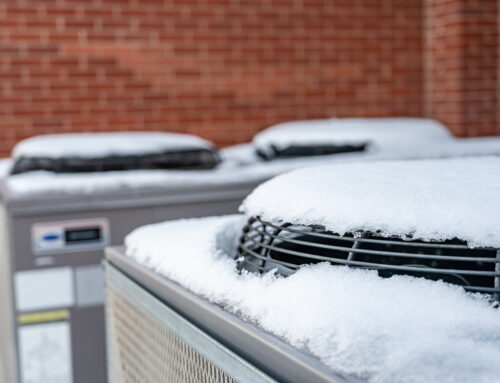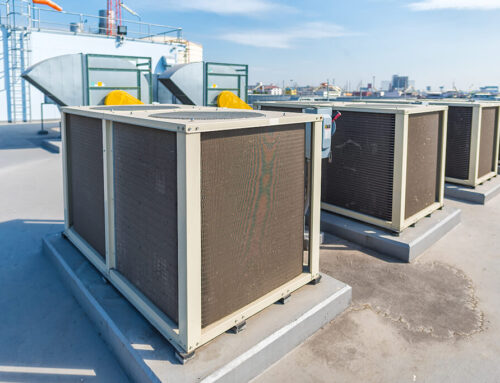Commercial refrigeration gaskets are the unsung heroes keeping your freezer, appliance, and cooler units in the kitchen with uncompromised cold storage and energy costs in check. Refrigeration door seals are the unsung heroes in commercial refrigerators, sealing the deal—quite literally—between the harsh world of a bustling kitchen and the crisp, safe haven of refrigeration equipment that preserves your perishable appliances. Don’t miss out on our tips for maintenance, including notes on inspections and how to make door gaskets last; ensure you sign up for our Newsletter. Every refrigerator and freezer hinges on these vital custom refrigeration gasket components for peak performance, but not all seals are created equal. Regular inspections and taking notes of the gasket’s condition are critical, ensuring the number of seals in operation meets the required standards. When you need Refrigeration Repair Services for your commercial refrigerator, turn to the experts at Evolution Mechanical for reliable maintenance that includes thorough inspections and detailed notes throughout the process. While some refrigeration door seals simply lock in the chill, others boast advanced features tailored to specific refrigeration equipment needs, enhancing the inspection process. Understanding the subtle yet critical difference in conducting regular inspections, particularly of your refrigeration door seals, can transform how you maintain your food safety standards and manage operational expenses with custom refrigeration gasket maintenance.
From walk-in coolers to display freezers, each custom refrigeration gasket has a story—a purpose designed to fit like a glove around every type of commercial refrigerators or freezers it embraces. Dive into the diverse world of gaskets where saving green and keeping clean go hand-in-hand.
Understanding the Role of Refrigeration Gaskets
After exploring what commercial refrigeration gaskets are, let’s delve into how they function within refrigeration systems. Custom refrigeration gaskets are crucial for maintaining temperatures and keeping energy costs down.
Consistent Temperature Maintenance
Gaskets are essential in refrigeration repair services, ensuring the cold air is preserved inside commercial refrigerators and freezers. Imagine your fridge as a fortress and the gasket as its gatekeeper, ensuring that the chill stays where it belongs. Without a tight custom refrigeration gasket, cold air escapes, causing the compressor to work overtime to keep food at safe temperatures.
This overworking not only stresses your equipment but can also lead to spoilage. For example, if you run a restaurant and your refrigerator loses its cool—literally—you might find yourself throwing away expensive ingredients. That’s why it’s essential to check these seals regularly for any signs of wear or damage.
Barrier Against Moisture and Contaminants
Gaskets serve as a shield against external elements. They prevent moisture from sneaking into your unit which could create an environment ripe for mold growth or other contaminants. It’s like having an invisible barrier that keeps out unwanted guests.
In businesses that handle food, this is critical because moisture can be a fast track for bacteria proliferation. Picture slicing into fresh produce only to find it tainted by unseen invaders; clearly not something you’d want on your menu or reputation.
Impact on Operational Costs
A robust gasket does more than just secure contents—it guards your wallet too. By preventing the escape of cold air, gaskets reduce energy consumption significantly. This translates directly to lower utility bills month after month—a relief for any business owner’s budget, thanks to effective Energy Efficiency Management. By implementing Energy Management Techniques and seeking Energy Consultations, companies can optimize savings. Don’t miss out on more tips; ensure your Newsletter Sign-Up today.
Consider this: A study by the Food Service Technology Center found that even small leaks in refrigerator door seals could increase energy use by up to 11%. That’s quite a chunk of change over time! Keeping those seals intact is akin to plugging holes in a leaking boat; it keeps you from sinking financially.
Options for Custom Refrigeration Gasket Profiles
Bespoke Gasket Designs
Custom refrigeration gaskets are key for unique cooling systems. They ensure a snug fit and optimal performance. When off-the-shelf gaskets don’t meet the specific requirements of your refrigeration unit, bespoke designs come into play. These custom-made seals can cater to any shape, size, or function needed.
Imagine a refrigerator with an irregular door shape due to its custom design or wear over time, a challenge that About Evolution Mechanical is familiar with addressing. Standard gaskets may not fit properly, leading to energy loss and poor temperature control. Here’s where custom profiles shine. They are tailored to match the exact dimensions and contours of your equipment.
Material Choices
The right material makes all the difference in gasket effectiveness. For custom refrigeration gaskets, two popular choices stand out: silicone and neoprene. Each has its own set of benefits suited to different environments, reflecting Our Philosophy and enhancing Our Services.
Silicone is known for its high resistance to temperature extremes. It remains flexible in cold conditions, making it ideal for freezers and chillers. Silicone also resists degradation from ozone and UV light.
Neoprene, on the other hand, is durable against wear and tear. It provides excellent sealing properties and is resistant to various chemicals commonly found in commercial kitchens.
Consider your commercial refrigeration solutions’ operating environment when selecting materials for your custom gasket profile.
Precise Measurements Matter
Accuracy in measurements ensures that your custom gasket fits perfectly. Even small errors can lead to big problems like air leaks or energy inefficiency.
Professional fabricators use advanced tools to take precise measurements of your refrigeration unit’s doors or lids where the gasket will be installed. These measurements guide the creation of a profile that matches every curve and corner without gaps.
A case study highlights this importance: A restaurant experienced increased energy bills due to improperly fitted standard gaskets on their coolers. After switching to precisely measured custom profiles, they saw a significant drop in energy usage—showing just how critical accurate sizing is.
The Variety of Commercial Refrigeration Gaskets
In the realm of commercial refrigeration, gaskets play a vital role in maintaining food safety and energy efficiency. Different types of gaskets offer unique benefits and are suited for various applications.
Common Gasket Types
Commercial refrigeration gaskets come in several forms to fit different refrigerator models. Magnetic, dart mount, and screw-in are the most prevalent types you’ll encounter.
Magnetic gaskets are popular because they create a strong seal by adhering magnetically to the metal door frame. They’re easy to install and provide a reliable closure, keeping cold air inside where it belongs. This type is common in many commercial refrigerators due to its ease of use and effective sealing capabilities.
Dart mount gaskets have a protruding ‘dart’ that fits into a groove on the refrigerator door. This design ensures a snug fit and is often found in older or custom-built units. These require more effort to replace but offer durability for heavy-duty usage.
Screw-in gaskets attach directly onto the refrigerator door with screws, providing a sturdy seal that can withstand frequent opening and closing—a necessity in busy kitchens.
Durability Differences
Gasket durability varies among types, affecting their lifespan and maintenance needs. Magnetic gaskets may wear out faster due to their constant contact with the metal surface but are easily replaced without tools. Dart mount and screw-in options typically last longer as they’re firmly anchored, reducing wear from movement and misalignment.
The material also affects durability; some commercial refrigeration gaskets are made from rubber compounds designed for extreme temperatures or chemical exposures commonly found in restaurant environments.
Choosing Gasket Types
Selecting between standard and specialized commercial refrigeration gaskets depends on your specific needs. Standard commercial refrigeration solutions might suffice for general use cases like storage coolers in restaurants or retail food establishments.
However, if you run an establishment with unique requirements—like extreme temperature ranges or specific sanitary regulations—you might need custom refrigeration gasket solutions tailored to those conditions. Specialized materials can handle harsher environments or provide additional features such as antimicrobial surfaces which prevent bacteria buildup around seals—a crucial consideration for maintaining food safety standards.
For example, let’s say your kitchen deals with high-temperature cooking right next to cooling units; this scenario would benefit from heat-resistant commercial gaskets designed not to degrade when exposed to higher-than-normal temperatures regularly encountered during service hours.
Compression Style vs. Adhesive Door Gaskets
In commercial refrigeration, gaskets ensure a tight seal for efficiency and food safety. The choice between compression style and adhesive gaskets affects installation, maintenance, and suitability.
Ease of Installation
Compression gaskets slide into a groove around the door frame. This design allows for quick replacement without tools or adhesives. Workers can easily snap them in place during routine maintenance or when an immediate fix is necessary.
Adhesive gaskets require a clean surface and precise alignment for proper installation. They are backed with a sticky substance that adheres to the refrigerator door. Although this process might take more time, it creates a strong bond that holds the gasket firmly in place.
Maintenance Requirements
The maintenance of commercial refrigeration gaskets is crucial for longevity and performance.
For compression-style gaskets, regular checks are essential to ensure they haven’t become loose over time. If they have, they may need reseating or replacing to maintain their effectiveness.
Adhesive gaskets demand careful cleaning to prevent build-up that could compromise the adhesive bond. When these wear out or get damaged, removing them can be challenging due to the residue left behind by the adhesive.
Best Suited Environments
Different environments call for different types of seals on refrigeration units.
High-traffic kitchens benefit from compression-style gaskets because of their resilience and easy swap-out process during peak service times.
Conversely, adhesive options might suit less hectic spaces where long-term stability outweighs frequent changes. They also work well in environments where doors aren’t constantly opened and closed, reducing wear on the adhesive bond.
Benefits of Quality Gaskets in Commercial Refrigeration
Quality gaskets save energy and money. They also ensure equipment longevity and regulatory compliance.
Reduced Energy Bills
High-quality commercial refrigeration gaskets play a key role in cost-saving. They create an airtight seal that prevents cold air from escaping the fridge. This means refrigeration systems don’t have to work as hard to maintain the temperature. It’s like keeping your home’s windows closed during winter; it keeps the warm air in and your heating bill down.
Let’s break down the savings:
-
Improved Insulation: Better seals mean less temperature fluctuation.
-
Efficiency: Equipment runs less frequently, which reduces wear.
-
Long-Term Savings: Lower utility bills over time add up.
Imagine a fridge constantly leaking cold air because of poor seals. The compressor must work overtime, using more electricity and increasing your bill. By incorporating proper gaskets as part of sustainable building solutions, you can achieve significant reductions in energy consumption.
Extended Equipment Life
Good seals are like bodyguards for your fridge; they protect its vital parts from harm. When cold air stays inside, compressors cycle on and off less often. This reduced workload extends their life span.
Consider this:
-
Less Stress on Components: Compressors endure fewer cycles.
-
Preventative Maintenance: Regular gasket checks help avoid bigger issues.
-
Consistent Performance: A well-sealed fridge maintains temperatures better, which is easier on all its parts.
A restaurant with well-maintained gaskets might replace their fridges every 10 years instead of five. That’s double the lifespan just by taking care of the seals!
Health Regulation Compliance
Health inspectors love clean, well-sealed fridges—it shows attention to safety and hygiene. Properly functioning gaskets prevent mold growth and food contamination by maintaining consistent temperatures.
Key points include:
-
Safety Standards: Meet or exceed health codes.
-
Food Preservation: Proper sealing keeps food fresh longer.
-
Customer Trust: Patrons trust kitchens that follow regulations.
For example, if a health inspector finds a faulty seal that could lead to spoiled food, fines or closures might follow. Investing in quality gaskets helps avoid these risks entirely.
Efficient Gasket Replacement for Refrigeration Units
Knowing when to replace gaskets and understanding the process can save on energy and repair bills. Timely replacement ensures your refrigeration units operate efficiently.
Signs of Gasket Wear
Your commercial refrigeration unit is crucial for keeping products fresh. But, like any appliance, it needs regular maintenance. One key component that often needs attention is the gasket. This rubber seal keeps cold air inside and warm air out. Over time, it can wear down or get damaged.
Look for these signs:
-
The door doesn’t shut properly.
-
You feel cold air escaping from the edges.
-
There’s visible wear or tear on the gasket.
-
Your energy bills are rising without explanation.
If you spot any of these issues, it’s probably time for a replacement.
Overview of Replacement Process
Replacing a worn-out gasket isn’t as daunting as it might seem. It’s a straightforward task that you can often do yourself. Here’s what the process generally involves:
-
Measure your current gasket to find the correct size.
-
Order a new gasket that matches your unit.
-
Remove the old gasket—usually, they’re clipped or screwed in place.
-
Clean the area where the gasket sits to ensure a good seal.
-
Install the new gasket, making sure it fits snugly without gaps.
The whole operation might take less than an hour but can extend your appliance’s life significantly.
Cost-Effectiveness of Timely Replacement
Delaying gasket replacement may seem like saving money in the short term but consider this: A faulty seal makes your compressor work harder to maintain temperatures, leading to higher energy bills each month.
Moreover, if left unattended:
-
The strain on your compressor could lead to costly repairs or even full appliance replacement sooner than expected.
-
Spoilage rates increase as temperatures fluctuate, affecting food and beverage quality.
Manufacturing Capabilities for Custom Door Seals
After exploring efficient gasket replacement, it’s crucial to understand how these components are made. Modern technologies and scalable production methods ensure that businesses can get custom-fit door seals with ease.
Cutting-Edge Technology Used
Manufacturers leverage advanced technologies like Computer-Aided Design (CAD) and Computer-Aided Manufacturing (CAM) systems. These tools allow the creation of precise door seals tailored to specific refrigeration units. By using CAD/CAM, manufacturers can design products with a level of accuracy that manual processes cannot match. This precision is vital in ensuring that the custom gaskets fit perfectly, providing optimal sealing and insulation.
For example, a business may need a unique size or shape for their commercial refrigeration gaskets. The use of CAD allows designers to visualize the product in 3D before any material is cut, preventing waste and ensuring the final product meets customer needs.
Rapid Prototyping Services
Some manufacturers offer rapid prototyping as part of their Installation and Sales Services package in Our Services. This means they can quickly turn a design concept into a physical sample. Our Methodology allows our Client Base to test these prototypes to verify their functionality before committing to large production runs.
Our Methodology not only speeds up product development but also provides peace of mind for Our Client Base, enhancing our Installation and Sales Services in line with Our Philosophy. They know exactly what they’re getting before mass production begins, avoiding costly mistakes and delays.
Scalability From Single Pieces
Scalability is a key aspect of modern manufacturing processes. Whether you need just one custom gasket or thousands, manufacturers have the capability to scale their production accordingly. This flexibility ensures that businesses of all sizes can access quality door seals without being limited by minimum order quantities. For more information, visit our Contact Page.
Small businesses might start with a single piece to replace a worn-out seal on an essential unit while managing partners in larger corporations might order in bulk to retrofit an entire fleet of refrigerators at competitive prices.
Maintenance Tips for Long-Lasting Gaskets
Proper maintenance can extend the life of commercial refrigeration gaskets. Regular cleaning, routine inspections, and careful selection of cleaning chemicals are key.
Regular Cleaning Procedures
Imagine your commercial refrigeration gasket as a goalkeeper; it’s the main defense against external heat and contaminants. Just like a goalie needs to be in top shape, so does your gasket. To keep your HVAC system performing well, establish regular HVAC Maintenance Services and adhere to Maintenance Plans. Dirt and debris can cause the seal to degrade over time, leading to energy loss and potential food spoilage.
Here’s how you can maintain cleanliness:
-
Use mild soap and warm water to wipe down the gaskets weekly.
-
Dry them thoroughly with a soft cloth to prevent moisture buildup.
-
Ensure that staff members know not to neglect the gasket during their usual cleaning routines.
A clean gasket not only seals better but also prevents harmful bacteria from thriving in hidden crevices.
Inspection Routines
Early detection is crucial. Set up inspection routines that include checking for cracks, tears, or any signs of physical damage that could compromise the seal’s integrity.
Consider these steps:
-
Inspect the entire length of the gasket monthly.
-
Look for discoloration or changes in texture which might indicate aging.
-
Test the resilience by gently pressing on it; if it doesn’t spring back, it may need replacement. For further assistance, visit our Contact Page.
Regular HVAC Maintenance Services ensure you can schedule repairs before urgent situations occur, enhancing Energy Efficiency Management and reducing expenses in potential lost inventory due to temperature variations. Employing Energy Management Techniques during these checks can prevent costly downtimes, and Energy Consultations can provide further insights into maintaining optimal performance.
Avoid Harsh Chemicals
The materials used in commercial refrigeration gaskets are designed for durability but can be sensitive to certain chemicals. Using harsh cleaners may cause more harm than good by breaking down the material faster than normal use would.
To protect your investment:
-
Select non-abrasive cleaners specifically made for refrigerator seals.
-
Check with manufacturers or professional repair services for recommended products.
-
Educate your team about which substances should never come into contact with the gaskets.
Conclusion: Ensuring Optimal Performance with the Right Gaskets
You’ve got the lowdown on keeping your cool with top-notch commercial refrigeration gaskets. It’s clear that these unsung heroes are pivotal for an airtight seal, slashing energy bills, and keeping your grub fresh. Whether you’re jazzed about custom profiles or weighing compression against adhesive, picking quality gaskets is a game-changer for your chill zone. Remember, it’s not just about slapping on a new seal—it’s about smart maintenance and timely replacements to keep the cold in and the heat out.
Don’t let a shoddy gasket put your business on ice. Get proactive! Check those seals, embrace the upkeep, and when they’re looking worn out, make the switch without skipping a beat. Ready to step up your refrigeration game? Reach out for premium gaskets that fit like a glove and lock in efficiency. Your fridge—and wallet—will thank you.
Frequently Asked Questions
What are commercial refrigeration gaskets?
Commercial refrigeration gaskets are the seals that keep cold air inside your fridge or freezer units. They’re crucial for energy efficiency and food safety.
Why is it important to have quality gaskets in your commercial refrigerator appliance? Regular inspections can reveal the condition of the gaskets, ensuring your freezer maintains its efficiency and safety.
Quality gaskets ensure an airtight seal, reducing energy consumption and keeping food at safe temperatures. They save money and prevent spoilage.
Can I get custom profiles for refrigeration gaskets?
Absolutely! Custom profiles can be manufactured to fit any door shape or size, ensuring a perfect seal for your specific needs.
How often should I replace my refrigeration unit’s gaskets?
Replace them when you notice wear, like cracks or stiffness. Generally, inspect your maintenance plans every 3 months and plan for replacement annually.
What’s the difference between compression style and adhesive door gaskets in commercial refrigerator appliances? When considering refrigeration equipment, it’s important to look at the type of door gasket used.
Compression style gaskets press into place, while adhesive ones stick on. Compression types are more common in commercial settings due to durability.
Any tips for maintaining my refrigerator’s gasket?
Keep them clean with mild soap and water; avoid harsh chemicals. Also, check regularly for any signs of wear or damage.
Does efficient gasket replacement benefit my business?
Yes! Efficient replacement within sustainable building solutions minimizes downtime, keeps energy costs low, and ensures your products stay fresh longer. It’s a smart move financially.






